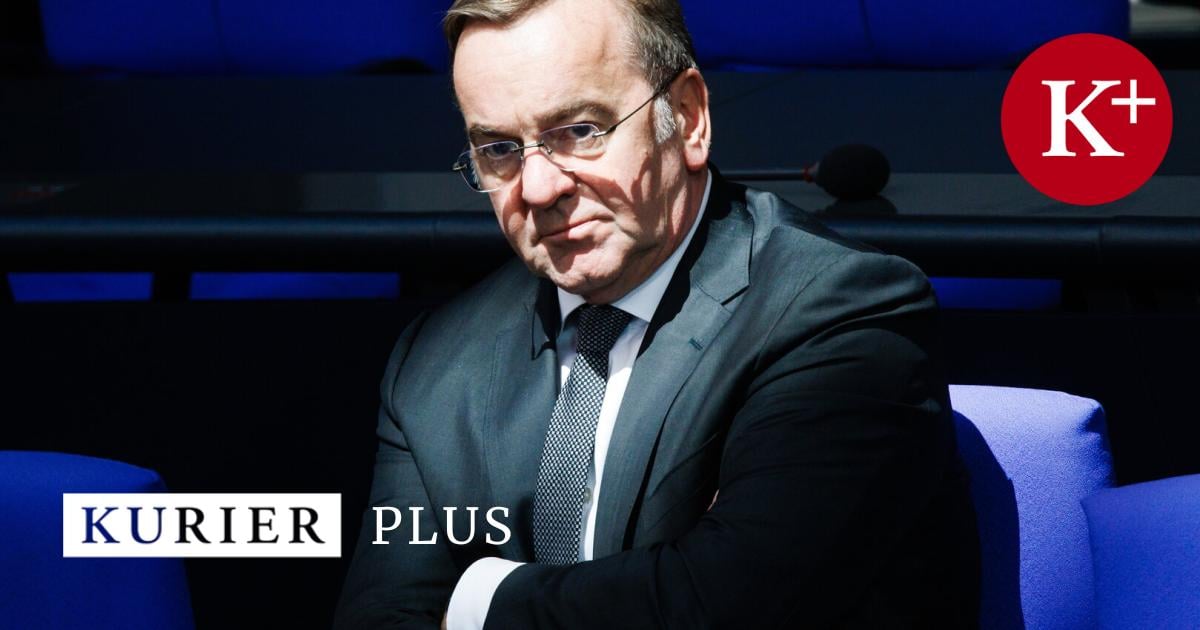Apparently no one has an answer to that, which is also the reason for the disastrous spectacle that the venerable party is currently putting on. For weeks, everyone from the party leadership downwards emphasized that Scholz was the only right candidate, regardless of poll numbers. But since it became apparent that no one at the grassroots level really wanted to campaign for the tired Scholz, the party has looked hopefully to Pistorius – and made him reserve chancellor, a red projection screen.
This is only understandable given his demeanor. The 63-year-old has what Scholz so obviously lacks: he is approachable, sometimes really empathetic; shirtless and hands-on when you need it. A decision-maker who can work with ordinary party members as well as with the US Secretary of Defense. And who, unlike many of his failed predecessors (just remember Christine Lambrecht, who visited German soldiers in the Malian desert in high heels), has a serious interest in what he does. Pistorius is the embodiment of what Scholz meant by “turning point”. When he stands in Kiev and promises that Germany will deliver, then people believe him.
The Minister of War
Actually, and this is the strange thing about Pistorius’ personality, his office and his positioning on Ukraine matters should disqualify him. When he said a few months ago that Germany had to become “war-ready,” there was horror in the SPD. He was a “right-winger,” a militarist, and that didn’t fit with the party, they said. Scholz also immediately dismissed his idea of reintroducing compulsory military service in order to fill the personnel gap in the Bundeswehr. He told his colleague that recruiting would be a “manageable task”.
The condescension with which Scholz spoke was intentional. There was a rift between him and his minister from day one, and it only grew larger with Pistorius’ popularity. The fact that Scholz contested the EU election campaign with posters that simply said the word “peace” was just the latest example of this.
Scholz, who likes to describe himself as a “peace chancellor”, is also playing into the emotional state of the SPD, which has always seen itself as a disarmament party, not a rearmament party. He knows that this is exactly why many people are struggling with the law-and-order man Pistorius. And when Scholz speaks of consistency, not volatile poll numbers, as the basis for a candidacy, then he is alluding to another fear of the party: Many in the SPD remember with a shudder the hype in 2017, when they started with the “Schulz train “Wanted to end Merkel’s chancellorship.
How that turned out is widely known. Martin Schulz, President of the EU Parliament, seemed the perfect candidate, shirt-sleeved, down-to-earth; So quite similar to Pistorius. He also simply grew up and served his way up, was mayor, then a top politician. In the end, he only brought the SPD one thing: 20.5 percent, the worst result in history.
The Schmidt comparison
You can compare the hype, but not the people. Schulz was a stage man, Pistorius is not; When he lost his wife to cancer a few years ago, he hardly spoke about it. Schulz, on the other hand, was so open about his overcoming alcohol addiction that it became too much for some people.
Pistorius also likes to drink beer, but in the VfL Osnabrück stadium, where he comes from, and then without cameras. He likes to be reserved, not out of calculation. He even took the edge off the flaw that he lacks breadth of content and that he has nothing to do with the economy and social issues: “It would be presumptuous of me to claim that I can provide the answers to Germany’s economic problems shake it out of your sleeve like that. I can’t,” he said at a Die Zeit event. There was a lot of applause for this honesty.
In the Willy Brandt House, the party headquarters, they are looking for new pictures that could sell Pistorius. The most recent idea circulating is the comparison with the great Helmut Schmidt: he was also defense minister before Willy Brandt handed over to him. He was also a pragmatist, a specialist politician and a friend of clear statements.
What you shouldn’t tell: Schmidt failed, and that was because of his own party. They refused to follow him – especially because of his tough defense policy.
